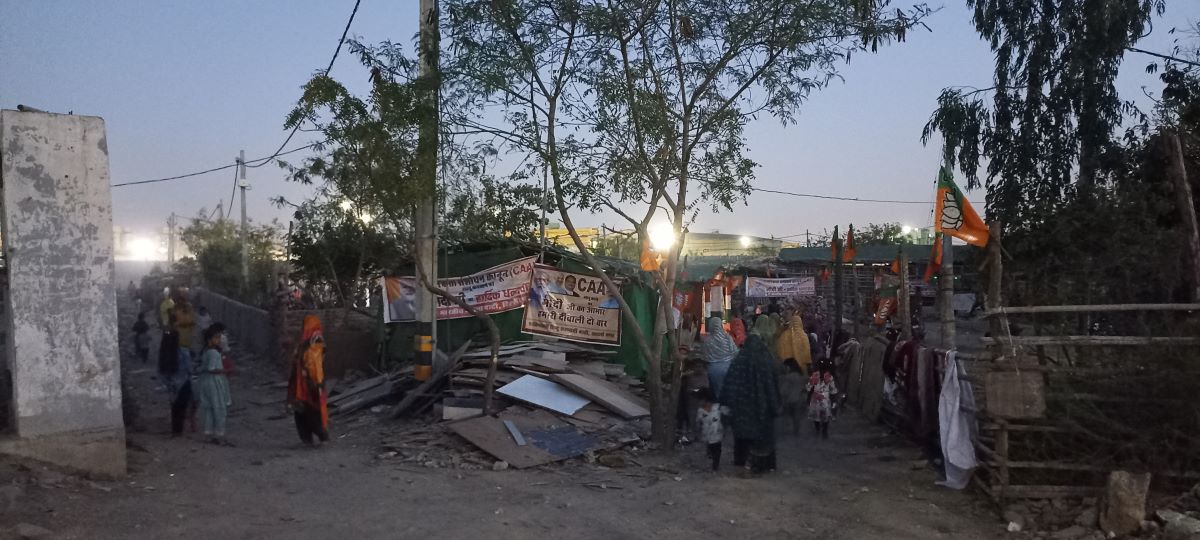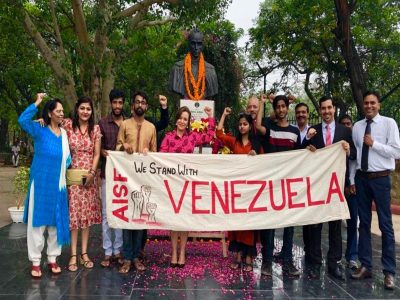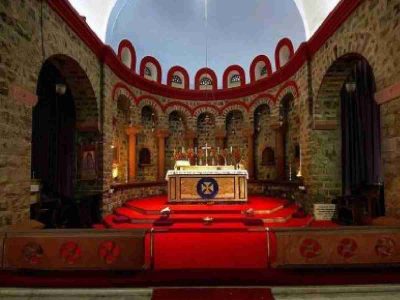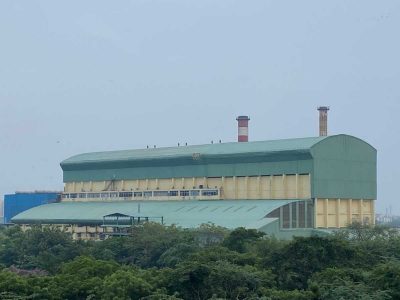On March 11, the Central government put in place the Citizenship Amendment Act (CAA) rules through which persecuted minorities from Bangladesh, Pakistan and Afghanistan, will be given citizenship.
Presently, Delhi serves as home to many Hindus who had fled from Pakistan to evade forced conversions.
“They would kill us if we did not agree to get converted,” said a resident at one of the refugee camps at Majnu Ka Tila. Around 150 families have been residing for the past 10 years in these camps, which are spread across the banks of River Yamuna.
Many arrived together, spreading across the national capital and the National Capital Region, at the same time, while a few set up their residence in the slums as recently as March 14. Without work and with several mouths to feed, the residents reside in a stupor, expecting the government to help them out with their citizenship woes.
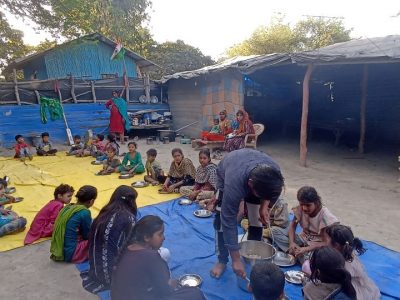
Lining up the pavement on the road, the residents selling mobile phone covers and tempered glass showcase their wares in a perpendicular line, one after the other.
They haven’t been able to secure steady jobs, owing to a lack of proof of citizenship.
“We are barely getting by. Most days, I make zero sales. People mostly stop here to buy cigarettes but there are no takers for mobile covers or tempered glass,” said Arun Kumar, 25, as he headed for his home after handing over the shop to his brother for the day.
Housing nine family members, including his wife, two daughters, one son, parents and two brothers, his bare-bricked house rests by the bank while a saffron flag with a picture of Lord Ram flutters above.
“We just want our citizenship. We have returned to our land and we do not ask for much but just the right to live here,” said Mira Devi, 45, who had named her daughter Nagarikta, hoping to secure her citizenship in the country.
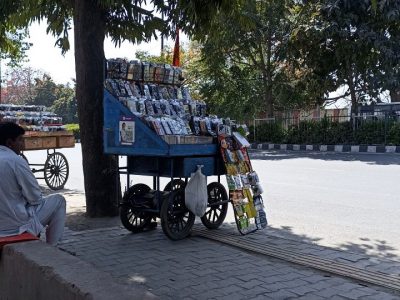
Claiming that the refugee camp was established atop the remnants of a kabristaan (Muslim graveyard), Devi narrated how the dead ironically offered refugees more comfort than the living.
“We used to pray to the dead every day to protect us. To an extent, it has worked for us. However, our lives have not changed. We left behind our acres of land and even our family members in Pakistan. Nobody is moving an inch to help us and nobody wants us here. We are desperate,” she added.
Devi added that her brother-in-law had to leave behind his children in Pakistan when he was crossing the border.
“He suffered a heart attack a month ago, just worried about his children across the border,” she said.
Making ends meet with a monthly payout of Rs 7,000, many in the settlement scrounge around in the hope of getting their children educated. However, only a few have secured Aadhaar cards while most remain without any proof of residence and citizenship.
This has led to the children relying on an NGO for education. “They come here twice a day to teach the children,” said Kumar.
In a similar vein, the lack of employment also eats away at the well-being of a Pakistani Hindu refugee camp under Signature Bridge. Living in ramshackle houses, some built out of bricks, mortar and cement, while others made from everyday materials, the 70 families in the encampment are taking life as it comes.
“Some of us sell kachori at the bridge’s opening, while others work with whatever they can lay their hands on. Most of us barely get by every day,” said Devraj Channa, 30, as he paused to take a swig from the glass of water.
“Some are like me, without anything to work on. I have not worked a single day in the past two months,” he added.
The settlement has existed for almost 11 years now.
Most of the refugees who now reside in Delhi had arrived specifically from Karachi and Hyderabad (Sindh). However, upon entering the Capital, they spread all across, occupying a number of areas including two spots at Majnu Ka Tila, Rohini Sector 11, Adarsh Nagar, Signature Bridge and Faridabad in the NCR.
The refugees find heart in being at the forefront of the demand for citizenship in the country, according to the Citizenship Amendment Act (CAA) rules.
However, no government has addressed their queries regarding citizenship till now. According to the Act, a persecuted minority has to have lived in the country for a period of five years.
“I will take my fight for citizenship to the state. There should be some provision for us who have been in the country for one-and-a-half years,” said Channa, a refugee.
A sense of uncertainty exists. Sunari, 35, a resident of Adarsh Nagar’s camp, hasn’t seen her parents in a decade.
Still awaiting citizenship, she said, “I cannot go back now. My mother asks me to come back but I know that the moment I go, there is no coming back. I have waited for 10 years, I can wait for five more.”
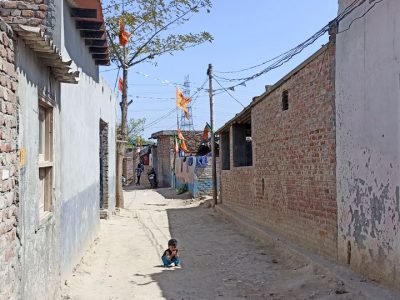
According to the CAA rules, non-Muslim religious minorities such as Hindus, Parsis, Jains, Buddhists and Christians from Bangladesh, Pakistan and Afghanistan can get their citizenship applications fast-tracked.
However, the community which escaped persecution in the neighbouring country of Pakistan, seems to have little to look forward to in the national capital.

